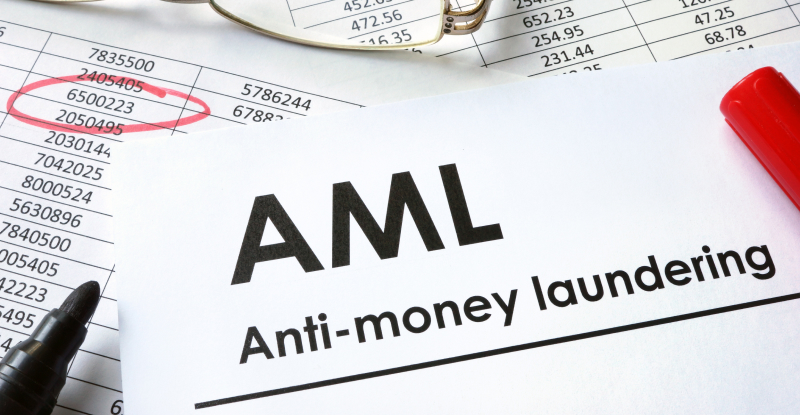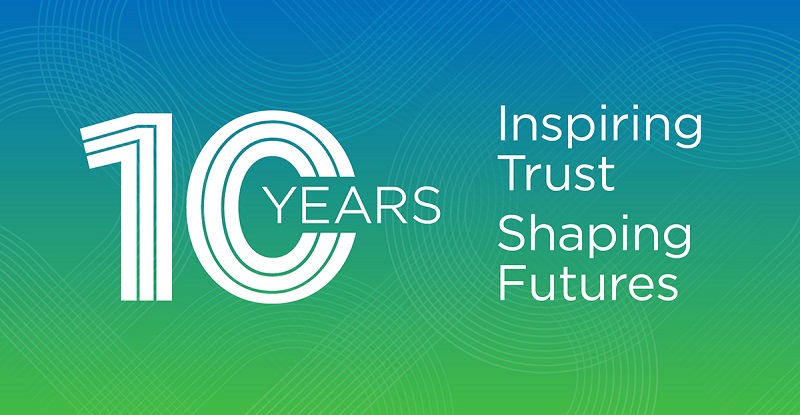- CPABC Trust Account Oversight Program FAQs
- CPABC Client Identification and Verification Rule (Rule 219) – Frequently Asked Questions
- Cash Rule (R. 411) - Frequently Asked Questions
- Guide to comply with Canada’s anti-money laundering and anti-terrorist financing (AML/ATF) legislation
- Anti-money laundering/anti-terrorist financing (AML/ATF) developments: New “know your client” rules for CPAs
- New anti-money laundering/anti-terrorist financing (AML/ATF) requirements associated with record-keeping and reporting to FINTRAC
- Anti-money laundering policy (2020)
- Anti-money laundering guide (2014)
- This document is from 2014 and therefore does not include reference to important recent amendments. CPA Canada is working on updating this publication, but for the time being we are keeping this older document posted for historical reference only.
- Risky business: Non-compliance with anti-money laundering requirements
Corporate Beneficial Ownership
As of October 1, 2020 private companies subject to the B.C. Business Corporations Act are required to prepare and maintain a transparency register of beneficial owners, including individuals who have direct or indirect control of the company or its shares.
- Transparency register update: Significant individual - Indirect control (September 2020)
- BC corporate beneficial ownership registry general information
Land Owner Transparency Registry
The Land Owner Transparency Registry (LOTR) is a registry of information about individuals who are considered to have an indirect interest in land which will be housed in a public database. Beginning November 30, 2020, the Land Owner Transparency Act (LOTA) requires that when an application is made to register an interest in land, a transparency declaration must be filed with the LOTA administrator.
Canada
Browse a collection of articles from CPABC’s Knowledge Base that relate to anti-money laundering.
Canada’s Minister of Finance has updated the existing Ministerial directives on countermeasures to apply to transactions coming from or going to the Democratic People’s Republic of Korea and Russia. Both directives take effect March 22, 2025.
Guidance related to these Ministerial directives is now available on the Financial Transactions and Reports Analysis Centre of Canada’s (FINTRAC) website.
Both directives apply to all businesses subject to the Act, including accountants. FINTRAC’s guidance explains the requirements for these businesses and includes the following updates:
- risk assessment of a sanctions evasion offence (Ministerial Directive on the Democratic People’s Republic of Korea)
- new correspondent banking relationship requirements (both directives)
More information can be found here:
FINTRAC guidance relating to the Ministerial Directive on the Democratic People’s Republic of Korea (DPRK) issued on December 9, 2017
FINTRAC Advisory
In order to protect the international financial system from money laundering and terrorist financing risks, the Financial Action Task Force (FATF) issued a statement on high-risk jurisdictions subject to a call for action and a statement on jurisdictions under increased monitoring. Businesses must consider this information and report transactions to FINTRAC as required.
Full text of the advisory is available at the following link: March 21, 2025 – FINTRAC advisory: Financial transactions related to countries identified by the Financial Action Task Force
On March 26, 2025, the Government of Canada published new Regulations in the Canada Gazette, Part II that create new obligations under the Proceeds of Crime (Money Laundering) and Terrorist Financing Act (the Act) and associated Regulations for factors, cheque cashers and financing or leasing entities.
The Regulations also allow businesses subject to the Act to disclose information between each other to facilitate the detection and deterrence of money laundering, terrorist financing and sanctions evasion and strengthen corporate beneficial ownership transparency.
More information regarding the new Regulations can be found in the Regulations:
FINTRAC has recently updated its advisories following the most recent plenary meeting of the Financial Action Task Force (FATF). Reporting entities are being advised of concerns about deficiencies in the anti-money laundering and anti-terrorist activity financing systems of certain countries.
More information can be found here: https://fintrac-canafe.canada.ca/notices-avis/avs/2024-11-18-eng
FINTRAC has released a Special Bulletin on the use of the legal profession in money laundering and sanctions evasion to increase the awareness and understanding of Canadian businesses about the characteristics of financial transactions that may be associated with the laundering of proceeds of crime through the legal profession.
This Special Bulletin can be used by Canadian businesses, including accountants, to identify and assess their money laundering, terrorist activity financing and sanctions evasion risks, apply controls and measures to mitigate these risks, and effectively detect and report suspicious transactions to FINTRAC.
In particular, the Special Bulletin provides information about some typologies used to launder money including the misuse of trust accounts, real estate purchases, and creation and management of companies and trusts. These typologies are not isolated to lawyers and provide important information and insight for CPAs regarding the risks or these services/actions.
The Special Bulletin can be found here and more information about FINTRAC and CPA obligations under Canada’s AML regime can be found here.
As of August 19, 2024, suspicious transaction reports will also be required if there are reasonable grounds to believe that a transaction is related to sanctions evasion.
FINTRAC has provided additional information regarding this new requirement in a special bulletin.
FINTRAC recently published a new operation alert to support reporting entities in recognizing financial transactions in the real estate sector suspected of being related to laundering the proceeds of tax evasion.
The Operation Alert provides a set of contextual risk indicators relating to non-compliance with tax laws in the real estate sector, which includes tax evasion, to assist reporting entities in identifying the potential laundering of tax evasion proceeds through the financial system.
More information about laundering proceeds of tax evasion in real estate and the operation alert can be found on FINTRAC website.
Please see below for information from FINTRAC regarding the new STR form and the FINTRAC API report submission process.
FINTRAC completes implementation of its modernized Suspicious Transaction Report in FINTRAC API report submission
The Financial Transactions and Reports Analysis Centre of Canada (FINTRAC) is implementing its new Suspicious Transaction Report form, which can now be submitted through FINTRAC API report submission, an application programming interface for the secure system-to-system transfer of report information.
These important changes are part of FINTRAC’s multi-year plan to update its reporting forms as a result of regulatory amendments published in the Canada Gazette, Part II, in 2019, 2020 and 2022.
Suspicious Transaction Report form and new guidance
The new Suspicious Transaction Report form contains fields to reflect amended regulations that came into effect on June 1, 2021.
As a result of the changes to the Suspicious Transaction Report, FINTRAC published the following guidance:
This new guidance replaces the following two guidelines:
- What is a Suspicious Transaction Report
- Reporting suspicious transactions to FINTRAC
FINTRAC API report submission
FINTRAC API report submission now allows for the secure system-to-system transfer of report information to FINTRAC for the following report types:
- Suspicious Transaction Reports
- Large Cash Transaction Reports
- Large Virtual Currency Transaction Reports
FINTRAC continues the implementation of its modernized forms for the Electronic Funds Transfer Report and the Casino Disbursement Report, as per its schedule to implement change to reporting forms. The API report submission testing environment is available for the Electronic Funds Transfer Report and the Casino Disbursement Report. Technical documentation to implement API report submission for these report types is also available on FINTRAC’s website: Draft documents to help you prepare for changes to FINTRAC’s reporting forms.
Businesses that submit larger volumes of reports and that do not have access to FINTRAC API report submission should contact FINTRAC by email at F2R@fintrac-canafe.gc.ca.
For more information on these changes, consult Modernization and upcoming changes impacting reporting entities. For questions, please contact FINTRAC by telephone at 1-866-346-8722 (toll-free) or by email at guidelines-lignesdirectrices@fintrac-canafe.gc.ca.
FINTRAC expects businesses to comply with all of the obligations under the Act and associated Regulations, but understands that many may face challenges as they transition to meeting these new obligations. Given the scope of the changes, and the impact on businesses, FINTRAC will exercise flexibility when assessing and enforcing the Act and associated Regulations.
FINTRAC would like to thank the businesses that have provided input on the implementation of the new requirements and on the related guidance. With their feedback, FINTRAC has been able to create better products that support the common goal of having a strong anti-money laundering and anti-terrorist financing regime that keeps Canada’s financial system secure.
Updated Resource Documents For Reporting Entities in Advance of Changes to New Reporting Forms
The Financial Transactions and Reports Analysis Centre of Canada (FINTRAC) recently released updated the documentation to assist reporting entities subject to the Proceeds of Crime (Money Laundering) and Terrorist Financing Act (the Act) and associated Regulations prepare for the implementation of the new reporting forms, which will be implemented by June of 2024.
Please see information from FINTRAC below:
Accessing Changes to The Documentation
The documents have been updated to reflect feedback from reporting entities that are testing the implementation of the new forms.
To access these documents, please visit the Draft documents page of FINTRAC’s website. The documents that have changed are specifically highlighted as updated. These documents are subject to further changes as needed based on subsequent testing by businesses. All changes will be communicated promptly.
Availability of API Report Submission for Testing
FINTRAC API report submission is the new application programming interface that allows for the secure system-to-system transfer of report information to FINTRAC. It is geared towards businesses that report higher volumes of transaction reports. FINTRAC API report submission is available for electronic funds transfers and casino disbursement reports. Businesses that submit larger volumes of reports and that do not currently have access to FINTRAC API report submission should contact FINTRAC by email at F2R@fintrac-canafe.gc.ca.
Availability of FINTRAC Web Reporting System for Testing
Transaction reports can also be submitted through the FINTRAC Web Reporting System (FWR) for all report types except for Terrorist Property Reports. The new Suspicious Transaction Report (STR) form will be available in FWR on February 26, 2024, and the Electronic Funds Transfer Report (EFTR) and Casino Disbursements Report (CDR) forms will be available in FWR in June 2024.
Additional Information
The schedule to implement changes to FINTRAC’s reporting forms can be found on FINTRAC’s website. We are committed to informing businesses quickly of any updates to this schedule. To ensure you receive timely updates (and other important FINTRAC news), please subscribe to FINTRAC’s mailing list.
For questions about these documents, please contact FINTRAC by telephone at 1-866-346-8722 (toll free) or by email at guidelines-lignesdirectrices@fintrac-canafe.gc.ca.
Video Series on Methods to Verify the Identity of a Client
FINTRAC has published a series of videos on prescribed methods that can be used to verify the identity of a person or an entity.
All businesses, including certain CPAs and firms, are subject to the Proceeds of Crime (Money Laundering) and Terrorist Financing Act and associated Regulations must verify their clients’ identity using prescribed methods.
More information regarding methods to verify the identity of a client and the videos.
Verifying the identity of a person or an entity removes the anonymity from financial transactions and is one of the most important ways to protect Canada’s financial system from money laundering and terrorist financing activities.
Schedule for Implementing Changes to its Reporting Forms
FINTRAC recently published its most recent implementation schedule for these changes. Consult the updated schedule.
CPAs and firms who are FINTRAC Reporting Entities are encouraged to review the updated schedule and ensure that updates are made where necessary to their AML policies and procedures.
FINTRAC advisory: Financial transactions related to countries identified by the Financial Action Task Force
FINTRAC recently updated information regarding countries identified by FATF. CPAs are encouraged to consult FINTRAC’s advisories to review concerns identified at the FATF plenary meeting about deficiencies in the anti-money laundering and anti-terrorist activity financing systems of certain countries.
More information about countries identified by FATF.
If you have any questions regarding whether you or your firm is subject to FINTRAC requirements please see CPA Canada’s Guide to Comply with Canada’s Anti-Money Laundering and Anti-Terrorist Financing (AML/ATF) Legislation (March 2022).
Schedule for Implementing Changes to its Reporting Forms
FINTRAC continues its multi-year plan to implement changes to its reporting forms to comply with regulatory amendments in 2019, 2020 and 2022.
FINTRAC recently published its most recent implementation schedule for these changes. Consult the updated schedule.
CPAs and firms who are FINTRAC Reporting Entities are encouraged to review the updated schedule and ensure that updates are made where necessary to their AML policies and procedures.
If you have any questions regarding whether you or your firm is subject to FINTRAC requirements please see CPA Canada’s Guide to Comply with Canada’s Anti-Money Laundering and Anti-Terrorist Financing (AML/ATF) Legislation (March 2022) available here: https://www.cpacanada.ca/en/business-and-accounting-resources/forensic-and-investigative-accounting/anti-money-laundering-and-anti-terrorist-financing-guide
New FINTRAC Resource Documents – Suspicious Transaction Report (STR) Forms
On December 16, 2022, FINTRAC released new draft forms for all reporting entities in advance of upcoming expected changes to the Suspicious Transaction Report (STR) form in 2023. The updated forms reflect legislative amendments that came into force on June 1, 2021 and include added functionality that allows for a more streamlined experience when reporting STRs.
The following draft documents are available on FINTRAC website:
- STR mock form
- Reporting suspicious transactions to FINTRAC guidance
- STR JSON schemas (reports and transactions)
FINTRAC notes however, that this is an early release of the documentation and specific package for the STR reporting rom. The documents are in their final stages of development and are still labeled draft, therefore are subject to minor subsequent changes. The documents are being provided to provide reporting entities with time to made necessary business process and IT system changes that may be needed to accommodate the new forms.
Additional and updated draft documents are expected to be published in early 2023. These updated forms will be posted here as soon as they are available.
For any questions regarding these changes or about your obligations as a reporting entity please contact FINTRAC by telephone at 1-866-346-8722 or by email at F2R@fintrac-canafe.gc.ca
FINTRAC Operational Alert: Terrorist Activity Financing
On December 15, 2022 FINTRAC released its a new Operational Alert on Terrorist Activity Financing. The Alert was developed to assist those subject to the PCMLTFA better identify and report to FINTRAC financial transactions suspected of being related to terrorist activity financing. The Alert outlines indicators to help reporting entities in their analysis and assessment of suspicious financial transactions.
The new Alert can be found here: https://fintrac-canafe.canada.ca/new-neuf/nr/2022-12-15-eng
New FINTRAC Resources for Client Identification Verification
FINTRAC recently published a series of videos on methods that can be used to verify the identity of a person or entity.
All CPAs subject to the PCMLTFA and its Regulations must verify their clients’ identities using prescribed methods as party of their “know your client” obligations.
The FINTRAC videos can be found here.
Additional guidance on client verification can be found here.
Underground Banking through Unregistered Money Services Businesses - https://fintrac-canafe.canada.ca/intel/advisories-avis/bank-eng
Crowdfunding platforms and certain payment service providers must register with FINTRAC and the definition of “EFT” was amended
Amendments to the Proceeds of Crime (Money Laundering) and Terrorist Financing Regulations (PCMLTFR) and the Proceeds of Crime (Money Laundering) and Terrorist Financing Administrative Monetary Penalties (PCMLTFAMP) Regulations have been registered and are now in force.
As a result, crowdfunding platforms and certain payment service providers are now covered as money services businesses (MSBs) or foreign money services businesses (FMSBs) under the PCMLTFA, and have the following obligations:
- Register with FINTRAC
- Develop and maintain a compliance program
- Carry out know your client requirements, including verifying the identity of persons and entities for certain activities and transactions
- Keep certain records, including records related to transactions and client identification
- Report certain transactions to FINTRAC
For more information about these obligations, see information about MSBs and FMSBs.
Electronic funds transfer (EFT) definition amendment
Registered MSBs and FMSBs may be affected by the amended EFT definition, specifically those that remit/transmit funds.
MSBs and FMSBs that carry out transactions by credit/debit cards, which permits the payment of goods and services, now have to comply with EFT obligations, including client identification, reporting and record keeping requirements.
Registering with FINTRAC as an MSB or FMSB
Crowdfunding platforms that provide services to raise funds or virtual currency and certain payment service providers must register as MSBs or FMSBs.
MSBs and FMSBs that are already registered with FINTRAC, and which offer services now subject to the Act, must update their registration information to reflect this.
They will now have obligations relating to these services, including updating their compliance program to reflect this additional service, identifying clients, keeping records and reporting certain types of financial transactions to FINTRAC, including suspicious transactions.
For information on how to register as an MSB/FMSB, please visit the following pages on our website:
- Check to see if you need to register with FINTRAC
- Register your MSB or FMSB with FINTRAC
- Guidance glossary (NOTE: Amended definition of an EFT and newly added definitions for crowdfunding platforms and crowdfunding platform services)
Source: FINTRAC
Special Bulletin – Russian linked money laundering and sanctions evasion
https://fintrac-canafe.canada.ca/intel/bulletins/rlml-eng
Update to the FINTRAC Assessment Manual
FINTRAC has updated the FINTRAC Assessment manual to reflect the recent coming into force of regulatory amendments, and related changes to their examination process. The update it consists primarily of minor language adjustments, additions to existing examination tests, and some new tests. Below is a summary of the changes:
Minor terminology adjustments, additions or changes to align with the PCMLTF Regulations or to reflect amended processes, such as:
- New terms such as “Dealers in precious metals and precious stones”, “Foreign Money Services Business” and “Virtual currency” are added where applicable.
- Part 2 – Examination phases: Changes reflect minor adjustments to processes
– Phase 1 – Planning and scoping
– Phase 2 – Examination and assessment
– Phase 3 – Developing conclusions and finalizing the examination - Part 3 – Assessment methods: Changes reflect new or amended processes to reflect the PCMLTF Regulations
– Section 3.1 – Compliance program requirements
– Section 3.3.4 – International Electronic Funds Transfer Reports
– Section 3.6 – Foreign branches, foreign subsidiaries and affiliates requirements
New tests or additions to existing tests:
- Section 3.2.2 – Know your client requirements (Beneficial ownership)
- Section 3.3.3 – Large Virtual Currency Transaction Reports
- Section 3.3.4 – International Electronic Funds Transfer Reports
- Section 3.3.6 – Suspicious Transaction Reports
- Section 3.4 – Record keeping requirements
FINTRAC has indicated that they will continue to update the manual to reflect amendments to the PCMLTFA and associated Regulations, and as their process evolves.
If you have questions directly for FINTRAC, please contact guidelines-lignesdirectrices@fintrac-canafe.gc.ca
If you have CPABC related questions, please contact regulatory@bccpa.ca
FINTRAC has recently announced that it will be withdrawing a series of temporary supports designed to assist reporting entities experiencing challenging in meeting their obligations due to the impact of public health measures.
Please see FINTRAC’s full notice.
Some of the changes include:
- Effective March 31, 2022, the temporary flexibility extended to reporting entities with respect to authenticating a government-issued photo ID document at a distance will end. This means that reporting entities will be required to use more than human judgement to authenticate government-issued photo ID document when a person is not physically present.
- Effective June 1, 2021, reporting entities that are required to verify the identity of a corporation or an entity other than a corporation are required to refer to a record that is authentic, valid and current.
- As set out in the FINTRAC guidance of April 23, 2020, for any person or entity whose identity was verified using the temporary flexibility provided, reporting entities were expected to:
- keep a record of all clients identified using this temporary method; and
- re-verify the identity of their clients in accordance with the PCMLTFR when the physical distancing measures have been lifted by public health authorities.
If you are a reporting entity that is experiencing pervasive reporting challenges due to the pandemic that are not addressed in this communication, please contact your FINTRAC regional compliance officer or send an email to guidelines-lignesdirectrices@fintrac-canafe.gc.ca.
- Updated guidance on forthcoming regulatory amendments and flexibility (December 2021)
- Record Keeping Requirements for Accountants (March 2021)
- Verifying identity of persons and entities for accountants (March 2021)
- Beneficial Ownership Requirements (March 2021)
- FINTRAC guidance for reporting entities – Accountants
- Money laundering and terrorist financing indicators – Accountants (January 2019)
- KYC – Accountants (June 2017)
- What is a suspicious transaction (April 2020)
- Reporting suspicious transactions to FINTRAC (April 2020)
- Record keeping – Accountants (June 2017)












